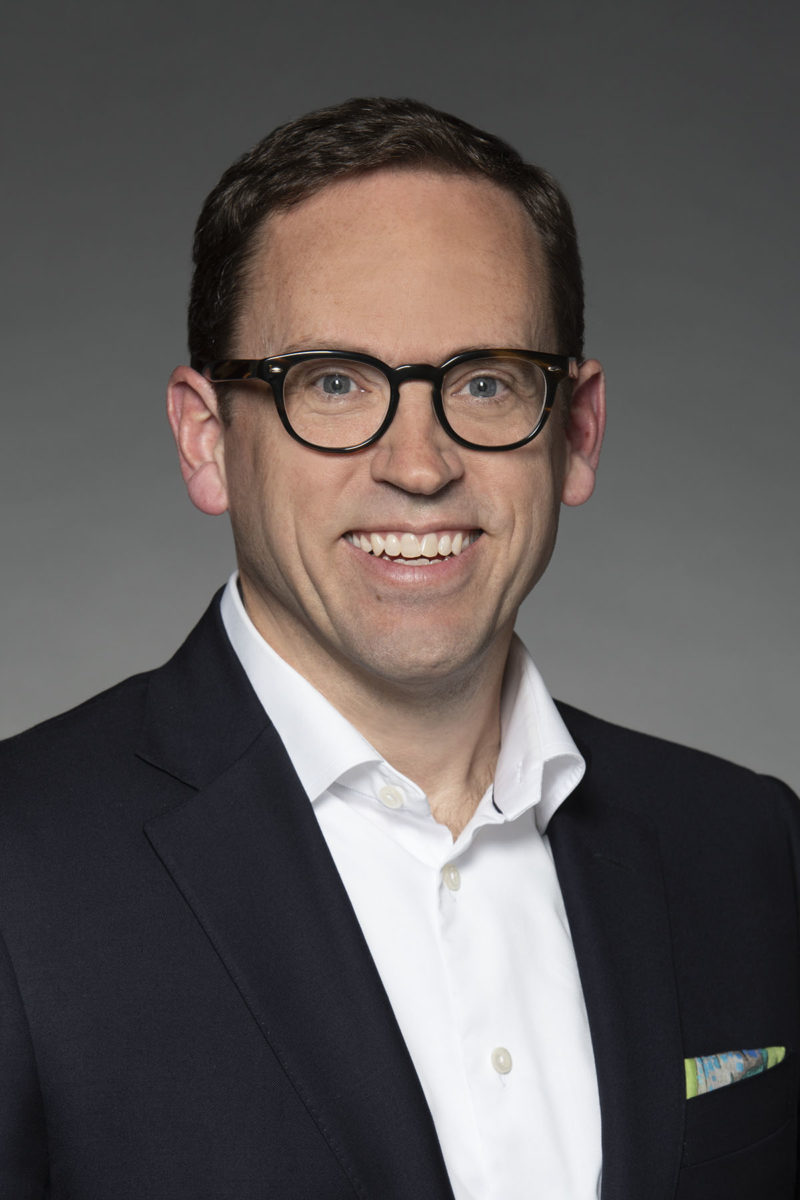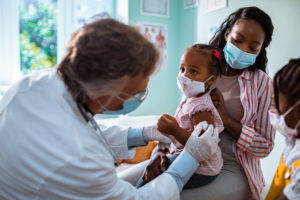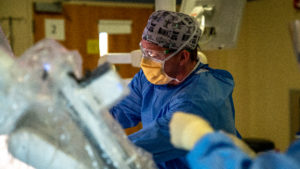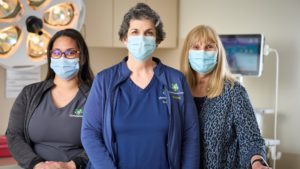This opinion piece appeared in The News Journal on Earth Day, April 22, 2022. It is authored by ChristianaCare’s Rob McMurray, chief financial officer, and Bettina Tweardy Riveros, senior vice president, Government Affairs and Community Engagement, and Chief Health Equity Officer.

Global environmental challenges can often seem abstract and distant, but for our neighbors in Wilmington’s Riverside and 11th Street Bridge neighborhoods last September, the floodwaters that poured through their homes and displaced more than 200 people were very close and very real.
These neighborhoods are not alone. Across the country, underserved and impoverished communities, frequently Black, Latino or Native American, often live in the most environmentally precarious regions. They are much more likely to be subject to natural disasters like flooding, as well as poor water quality, poor air quality and toxic pollution.
Their residents’ health and life expectancy suffer because of it. It’s a fact that there is a strong link between your ZIP code and your overall health. Wilmington residents just a few miles apart in different census tracts have a 13-year difference in life expectancy associated with where they live.

These problems are not new, but the past two years of the pandemic have brought into even sharper focus the inequity that we have inherited as a society. For example, a Harvard study in 2020 demonstrated that air pollution was linked with higher death rates from COVID-19 — likely one of the many reasons the pandemic has disproportionally harmed Black and Latino communities.
At ChristianaCare, we are committed to health. Over the past few years, we have increasingly recognized the powerful link between health and environment.
We are taking action, and we’re looking for partners to join us.
As the largest private employer in Delaware with more than 13,000 caregivers, we have an obligation to be environmentally responsible, reduce our greenhouse gas emissions and be a leader in sustainability efforts.
This isn’t just talk. Over the past year, we have been engaged in significant strategic planning to develop an environmental, social and corporate governance (ESG) framework that will drive our environmental impact. This work is hand-in-hand with our commitment to anti-racism and health equity.
We are developing an organizational framework that embeds environmental and equity goals in every part of our business, including our buying practices, our facilities management, our advocacy and investment, and even the ways we deliver care and connect with our surrounding community. We are working now to identify standards and metrics for environmental performance reporting and developing a governance model that delivers health equity and environmental stewardship.
From a public health standpoint, the case for creating a healthy environment is clear. It also makes sense from a business standpoint. Strong ESG standards push organizations to be more innovative, resilient and prosperous in the long term. They also foster a more engaged workforce.
At ChristianaCare, we are committed to health. Over the past few years, we have increasingly recognized the powerful link between health and environment.
At ChristianaCare, serving our neighbors with excellence and love is what motivates us every day and makes us feel good about what we do. For many of our caregivers, this passion and excitement about making the world better includes their commitment to environmental issues and social justice. They are eager to do more, and we are building a framework that will harness their energy and help them make an impact.
As we work to be more environmentally aware, health care systems like ours must realize we, too, are part of the problem. The health care sector is responsible for about 10% of greenhouse gas emissions in the United States, with hospitals accounting for more than one-third of those emissions, according to one study. By reducing our own carbon footprint, we can lead the charge toward a more sustainable and equitable Delaware through the way we purchase our products, reduce our waste and use energy in our buildings.
The Lancet Commission characterized climate change as both the “biggest global health threat” and “the greatest global health opportunity” of the 21st century. Air pollution, already costing the United States more than $6 billion in health care costs annually, is expected to cause up to 4,300 additional premature deaths by 2050 – just 28 years from now, unless we change the trajectory.
We don’t have to lose these lives or accept these costs. These are solvable problems.
We can lead the charge toward a more sustainable and equitable Delaware through the way we purchase our products, reduce our waste and use energy in our buildings.
This year’s Earth Day theme is “Invest in Our Planet.” Investment starts with a plan, and it’s designed to deliver results. At ChristianaCare, we are developing environmental standards that will help us meet the health needs of our community, create jobs and bolster our regional economy while also reducing health care costs and promoting health equity.
This isn’t about the journey—it’s about the destination. We aim to make an impact and commit to not only holding ourselves accountable, but also reporting our progress along the way.
A healthy environment benefits all of us. As we celebrate this Earth Day, we encourage everyone to think about how you can make an impact — in your company or workplace, or in your home or neighborhood. Now is the time. Make a plan, and then do it. And for other anchor institutions and employers in our community, we invite you to join us in this work. Together we can make a better working world for all.



